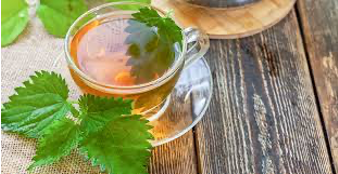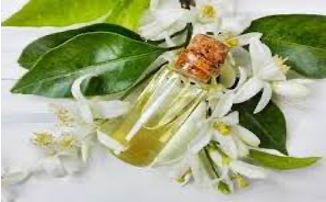Today’s herb is Nettle
 Nettle, or stinging nettle, is a shrub that comes from northern Europe and Asia. Its scientific name is Urtica dioica.
Nettle, or stinging nettle, is a shrub that comes from northern Europe and Asia. Its scientific name is Urtica dioica.
It has been a staple in herbal medicine since ancient times. Ancient Egyptians used stinging nettle to treat arthritis and lower back pain, while Roman troops rubbed it on themselves to help stay warm.
The plant boasts pretty, heart-shaped leaves and yellow or pink flowers, but the stem is covered in tiny, stiff hairs that release stinging chemicals when touched.
The leaves, stem, or root from the nettle plant can be crushed and made into powders, tinctures, creams, teas, and more. While people have used it for centuries as herbal medicine, modern research also supports many of the potential health benefits of nettle and nettle tea.
Health benefits of nettle:
- nettle offers a variety of vitamins, minerals, fatty acids, amino acids, polyphenols and pigments, many of which act as antioxidants inside the body
- may help suppress inflammation in the body which can help with inflammatory conditions such as arthritis
- may treat enlarged prostate symptoms
- may reduce hay fever symptoms
- may help lower blood pressure by allowing blood vessels to relax and reduce the force of your heart’s contraction
- may aid blood sugar control
- may protect your liver against damage by toxins, heavy metals and inflammation
- it is a natural diuretic so helps your body shed excess water and salt
- may help with wound healing
Nettle is safe to consume for most people, and easy to add to the diet as tea.
Nettle should be avoided:
- in pregnancy and when breast feeding
- if taking medication for blood pressure and blood thinning
- if taking diuretics
- if taking diabetic medication
If in doubt, as ever, please seek advice from a healthcare or medical professional.
Today’s spice would have been Nutmeg,
but as we covered it via Mace – covering one of my favourite oils instead Neroli
 Neroli oil is an essential oil, extracted from the flowers of bitter orange trees (Citrus aurantium var. amara). It’s also known as orange blossom oil.
Neroli oil is an essential oil, extracted from the flowers of bitter orange trees (Citrus aurantium var. amara). It’s also known as orange blossom oil.
The oil is extracted from the flowers by steam distillation.
Neroli oil emits a rich, floral scent, with citrusy overtones. It’s used as a base note in perfumes and scented products. Because of its soothing effect on mood, neroli oil is often used as an ingredient in body lotions and cosmetics. It can also be used in aromatherapy.
Although scientific research is limited, Neroli oil can have the following benefits:
- can have antimicrobial, antifungal and antioxidant properties so can help with skin irritation and acne
- may help repair and rejuvenate skin so can be beneficial for wrinkles, scars and stretch marks
- can be beneficial for seizures and convulsions
- can have beneficial effects on menopausal symptoms
- can reduce effects of PMS symptoms
- inhaling neroli oil may help lower blood by reducing cortisol, a stress hormone
- may help reduce stress, anxiety and depression
- may help with sleeping problems
When used according to guidance neroli oil is considered safe to use for all.
Neroli oil, as other essential oils, should be diluted before applied to the skin.
The usual dilution is 2 to 6 drops of essential oil in an ounce of carrier such as olive oil.
If in doubt, as ever, please seek advice from a healthcare or medical professional.
